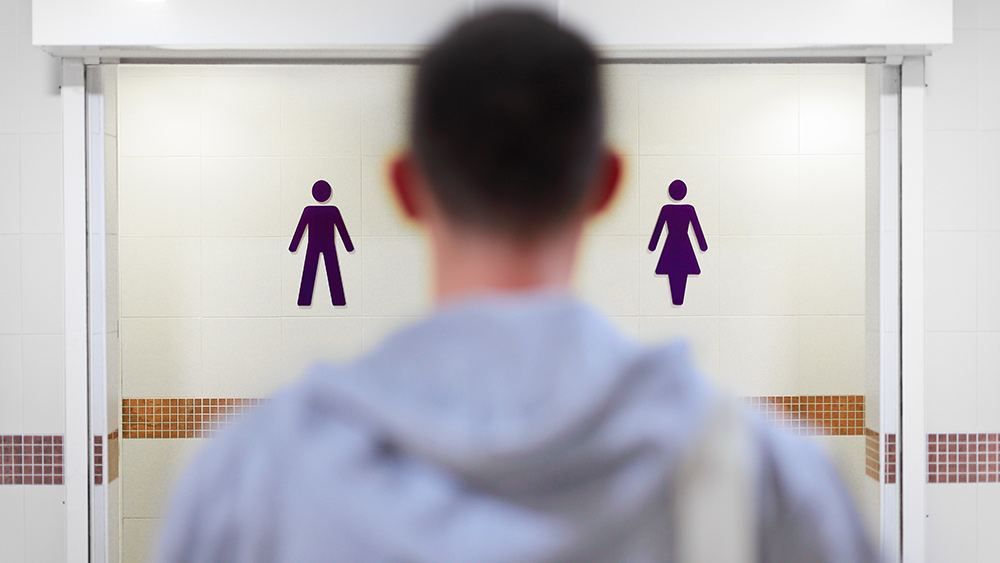Researchers believe Chinese herbal medicine could be the antibiotic alternative that this world so desperately needs
07/27/2016 / By Greg White

Researchers have discovered a person in the U.S. carrying a bacteria resistant to last resort antibiotics, which could mean “the end of the road” for antibiotics, according to U.S. public health authorities. At the same time, a new clinical trial is underway in the UK to determine whether Chinese Herbal Medicine could be an alternative treatment to antibiotics.
The double blind, randomised, placebo controlled feasibility RUTI trial is funded by the National Institute for Health Research (NIHR), and taking place in a primary care setting, where participants recruited to the trial by their GPs will be given one of two treatments.
Approximately 80 women who have experienced three or more urinary tract infections (UTIs) in the past 12 months will be given either individual herbs by a Chinese herbal practitioner, or standardized herbs provided by primary care clinicians. Both arms are placebo controlled. They will include herbs to prevent UTIs and treatment of acute episodes, reports the university. The treatment will last 16 weeks.
Chinese herbal medicine to the rescue
“Chinese herbal medicine (CHM) has a recorded history of treating symptoms of UTIs for over 2,000 years. More recent clinical research in China has provided some preliminary evidence that CHM can alleviate the symptoms of UTIs and reduce the rate of recurrence but more rigorous investigation is required. If successful, the findings of this trial will provide the necessary data to progress to larger more definitive trials,” noted Dr. Andrew Flower, from the University of Southampton.

“The RUTI trial is the first time Chinese medicine has been authorised as a Clinical Trial of an Investigational Medicinal Product (CTIMP) in the UK. This means we have had to pass through the same regulatory pathways as for a conventional drug trial, and it is an important precedent for future research,” he added.
UTIs are one of the most common bacterial infections among women inside a primary care setting. An estimated 40 to 50 percent of women will experience a UTI once in their life, 20 to 30 percent will have a recurrent UTI and about 25 percent will develop subsequent recurrent episodes, according to a press release by EurekAlert.
Antibiotics are implimented to treat both acute and recurrent UTIs. Although they have decreased the lifespan of severe symptoms, antibiotic resistance is a growing problem worldwide. Drug resistant infections claim the lives of roughly 700,000 people globally every year. While antibiotics have helped combat noxious bacterial infections, including tuberculosis and strep throat, their overuse and misuse has given rise to superbugs – bacteria that are resistant to multiple antibiotics.
Unprecedented superbug reaches U.S.
The recent antibiotic resistant strain was discovered in a 49-year-old Pennsylvania woman. Defense Department researchers determined she carried a strain of E. coli resistant to the antibiotic colistin, a last resort antibiotic for particularly dangerous superbugs, like a family of bacteria known as CRE, which health authorities have somberly nicknamed “nightmare bacteria.”
According to the President of the Register of Chinese Herbal Medicine, Emma Farrant: “With antibiotic resistance increasing rapidly, herbal medicine could play a valuable role in replacing some antibiotic treatments in appropriate instances, such as for treatment of UTIs, acute coughs and sore throats.
“Recent clinical research in China has provided some supportive evidence that CHM can alleviate the symptoms of UTIs and reduce the rate of recurrence one year post treatment from 30 percent when antibiotics were used alone, to 4.4 percent when antibiotics and CHM were combined. A recent Cochrane review of CHM for RUTIs also found some supportive data for herbal interventions but more rigorous trials, such as the RUTI trial, are vital to help confirm historical treatment success, and bring such treatment to the forefront of primary care to help reduce the UKs reliance on antibiotics and help prevent the truly frightening prospect of widespread antimicrobial resistance.”
Sources include:
Submit a correction >>
Tagged Under:
antibiotic resistance, superbug, urinary tract infections
This article may contain statements that reflect the opinion of the author





















